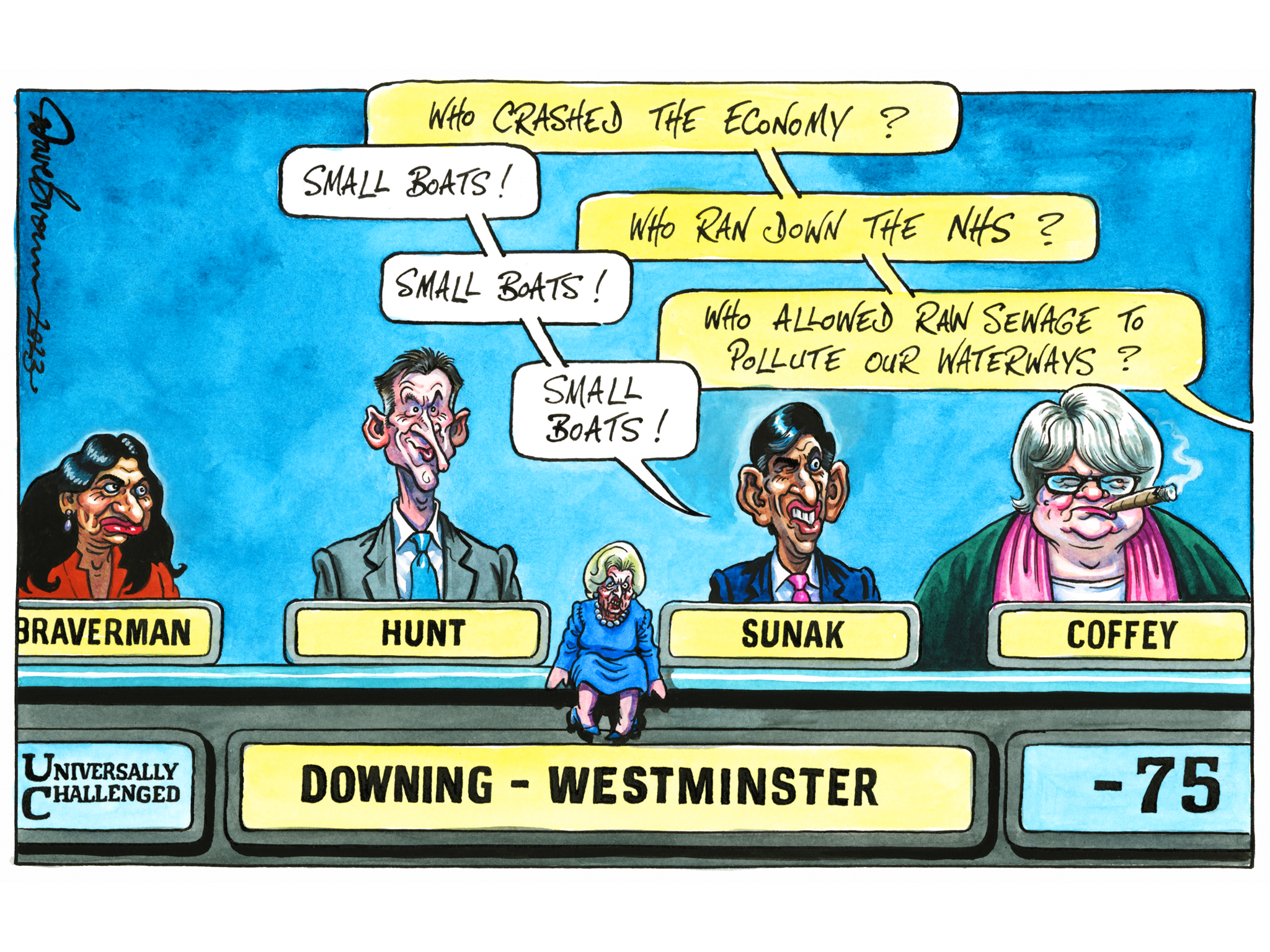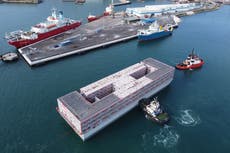Rishi Sunak may not (yet) be able to fix the economy, cut NHS waiting lists or end the wave of strikes in the public sector – or, if the polls are correct, hold on to some of the safest Conservative seats in the country – but he can at least pretend to be on course to “stop the boats” as parliament takes its long summer break. That is what passes for success at this stage of his administration.
The imminent passage into law of the so-called Illegal Migration Bill is a profoundly depressing moment. Coming as the government’s absurd migrant barge takes up its berth off Dorset, it demonstrates just how callous the government has become, but also how futile is its stigmatisation of refugees. Put at its simplest, a great big barge and yet another draconian law (which is probably unlawful under Britain’s international human rights obligations) will not “stop the boats”. Nor will the Rwanda deportation plan, held up by judicial review, and extremely limited in its capacity to process hundreds of thousands of migrants.
Neither, indeed, will Suella Braverman’s dehumanising language about “invasions”. Such high-profile, symbolic gestures, a kind of political cosplay, will achieve nothing. And the inevitable failure to “stop the boats” may well end up being Mr Sunak’s political epitaph. Or, perhaps, one of five such lines, given the lack of progress on his other designated “priorities”.
The government displayed a stunning lack of compassion in rejecting almost all of the humanitarian amendments suggested by the House of Lords. As an unelected chamber comprising many older and wiser citizens, it is easy for the new breed of Tory populists to deride, but, sad as it is, the Lords is one of the principal bulwarks against executive excess that the British constitution has, alongside being an important protector of human rights. So we need to support it until such time as reformers can find a system that cannot be so readily overridden by the government.
The Illegal Migration Bill is shameful, but its provisions for the treatment of children, pregnant women and LGBT+ people, highlighted by their lordships, are especially poignant. Will such inhumanity prevent a single person from crossing the Channel in desperation? Of course not. The only real effect of such attempts at deterrence is to encourage people to start evading Border Force, and to attempt to enter the country by completely clandestine means. That is not “taking back control of our borders”, to quote the populist phrase.
Much the same can be said for the Bibby Stockholm, set to accommodate 500 young adult men with no hope and not much to do, who will want to escape this strange vessel as quickly as possible. Despite the prospect of “shore leave” – which is both feared and resented by local residents – treating people in this way doesn’t seem compassionate, or even sensible, in terms of maintaining order on board.
Taking into account the cost of leasing the vessel and refitting it, the financial savings compared to hotel accommodation seem to be vanishingly small. And yet ministers persevere, because this bulky floating detention centre makes them look as if they are “doing something” to, yes, “stop the boats”.
Is there an alternative to the barges, the Rwanda plan, and even more useless legislation? It might be worth trying to clear the backlog of refugee claims in the system already, by devoting sufficient resources to the process. It might also be worth establishing those elusive safe and secure routes to asylum that are occasionally suggested by the opposition, as a way to negate the impetus to cross the English Channel by small boat, which involves both enormous risk and significant cost.
Even the establishment of a safe application process might not literally “stop the boats”, but it could reduce the flow of those attempting the crossing, and make the system more rational and fairer. It is not wise to make it virtually impossible to apply for asylum in Britain from anywhere other than Britain and British territorial waters.
All that said, the supply of perfectly genuine refugees shows no sign of abating, given the current state of the world with its numerous armed conflicts and zones of instability, and, like any liberal society, we should be asking how we can best adapt. As The Independent’s journalism has proved, the UK finds it difficult even to live up to the promises it made to Afghans who assisted the allied war effort in their country.
Such a discussion about moral imperatives, political reality and economic needs has also to encompass the fact that legal migration, under the much-vaunted points-based system, is running at a high level – with about 10 times as many people arriving this way as are doing so by small boat. Yet even in these circumstances, Britain is suffering from severe labour shortages, and – partly as a consequence – persistent inflation and stagnating living standards.
In other words, stopping the boats won’t end the debate, and won’t appease those who find immigration of any type objectionable. On migration, there seems no way that Mr Sunak can win.



Join our commenting forum
Join thought-provoking conversations, follow other Independent readers and see their replies
Comments